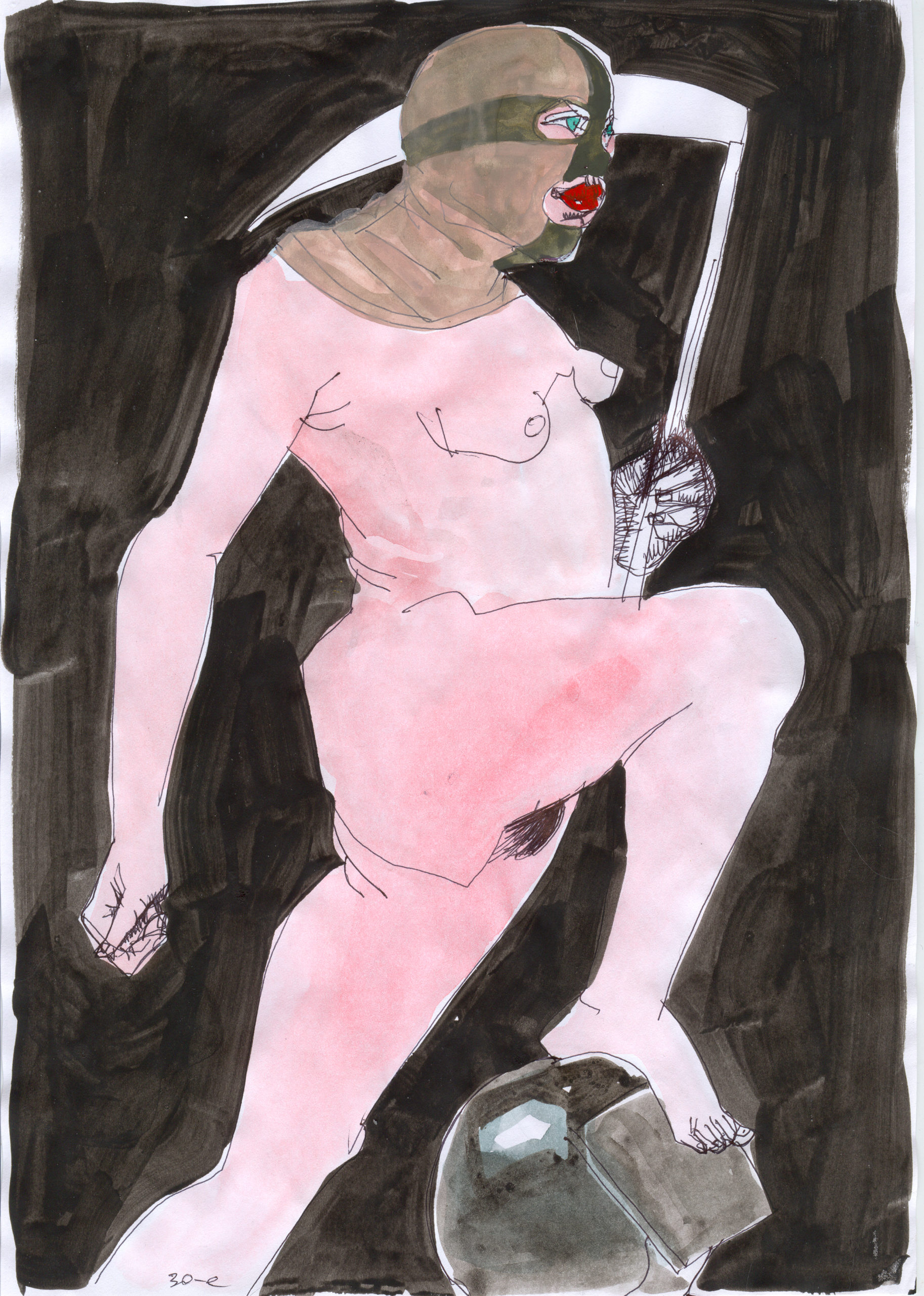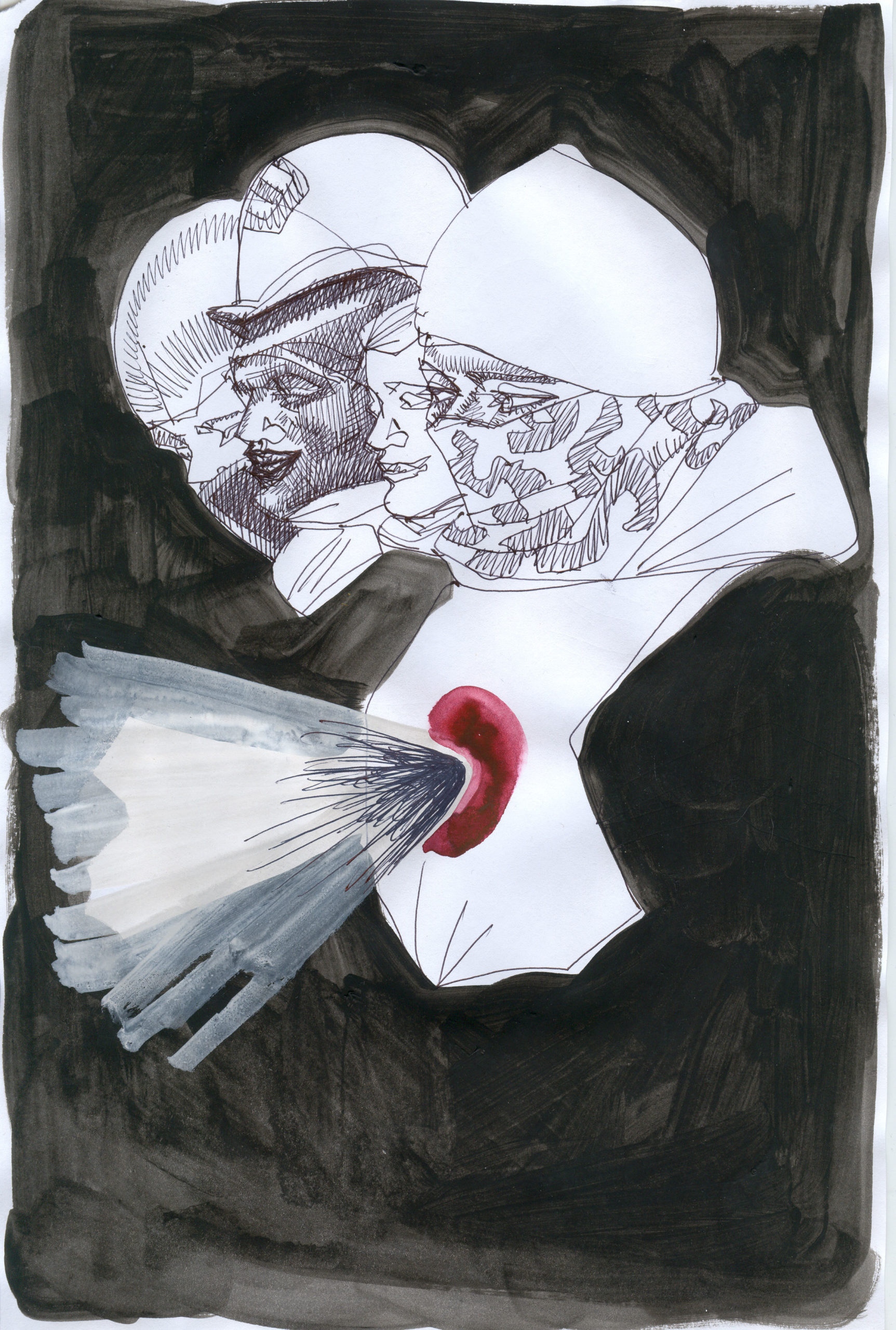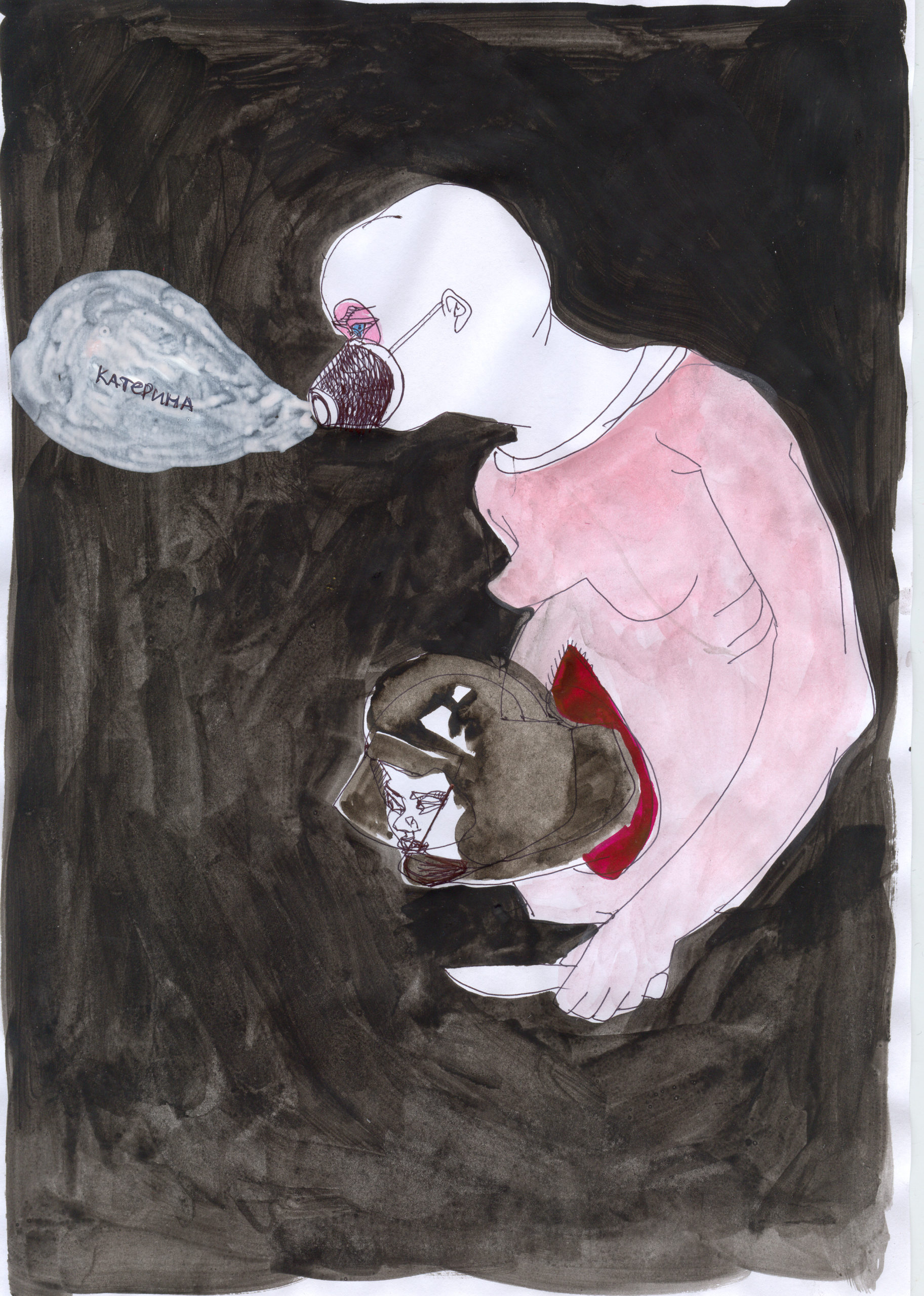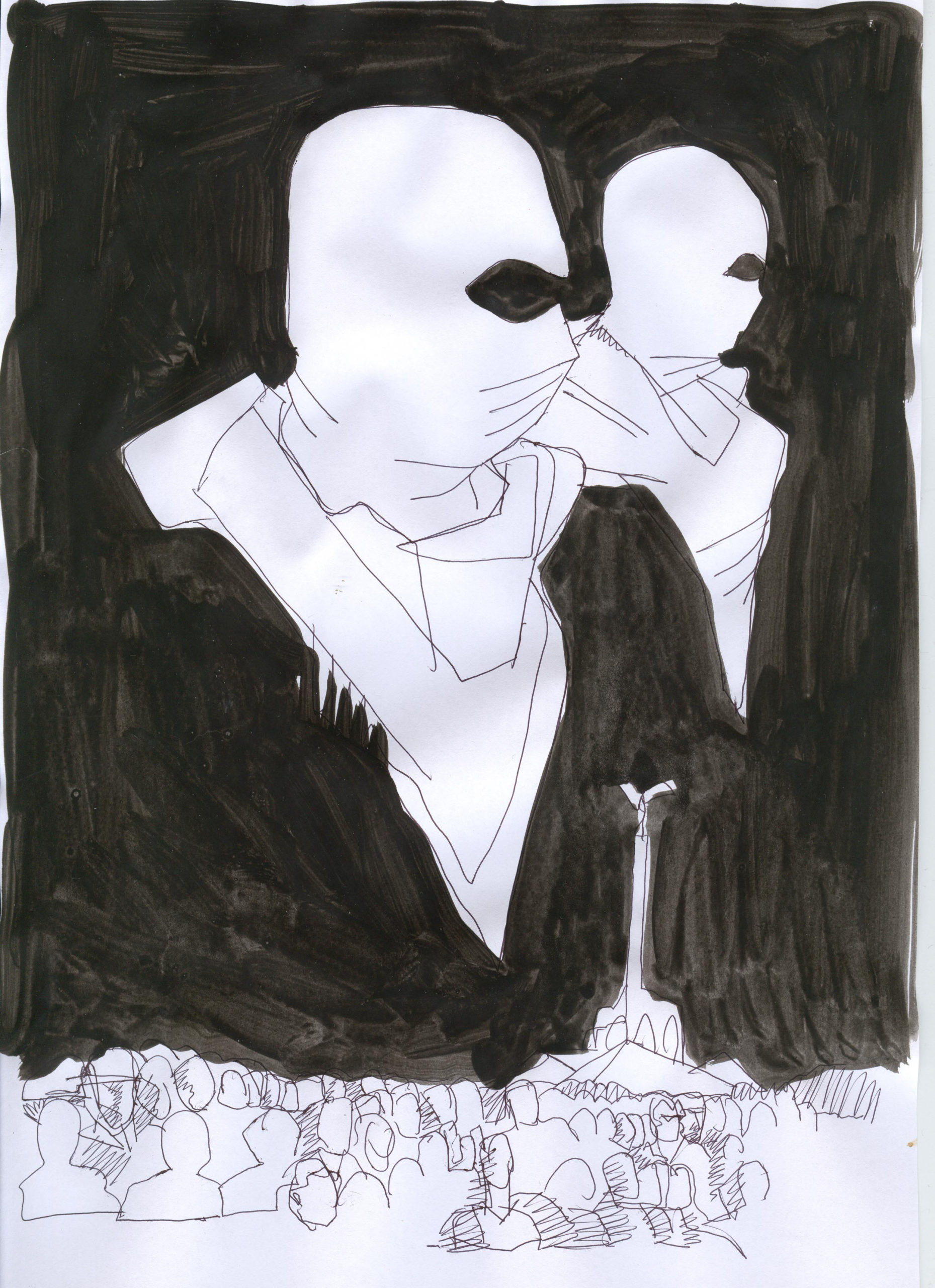November 2014
GR
If you follow the Viennese art scene, you might agree that this exhibition from the Chto Delat collective is a wonderful follow-up to Ines Doujak’s and Oliver Ressler’s project last month and represents an enormous development—not only for this institution but also within the context of a critical art scene in Vienna at large, which is quite advanced, if you compare it to other European cities. Also from the perspective of the genealogy of Chto Delat it’s really great to have this kind of collection of different works here. It’s great to see this history. It is possible to contrast the earlier videos, with their Brechtian, dialectical point of view with the kind of open projects we’re seeing now but I think there is definitely a through line. I want to jump right into our discussion with a very general question on the political situation in Russia because having been there last September, at a conference in Petersburg, I have a sense of what is going on. It’s quite frightening, also to visitors like me. Frightening not on a bodily level but more when you’re talking with friends, artists, activists there, about there being a kind of hidden repression in Russia, which has been going on for years. And there has been a dramatic change this year mainly because of the war in Ukraine. So, I think it’s good to start with this more general issue. And I just want to read some of the introductory paragraphs of the newspaper that was produced for this show. What it says in the second paragraph of the introduction, mainly referring to the installation and the film but perhaps also the whole exhibition, is this: “It reflects what art could be at the moment when familiar politics and everyday life start falling apart. The events of recent months have thrown Russian artists and creative workers into a completely new reality, a new cold-war atmosphere, an escalating search for enemies, ever tighter repression of all dissent, and an open military confrontation with Ukraine, leaving thousands dead on both sides. What seemed the stuff of nightmares yesterday is becoming reality today. Artists who want to address present conditions have wound up in a very complicated position. How can we carry on creating, speaking, and living when we are all frozen at our computer screens in hopeless anxiety, trying to make sense of the bloody mixture of contradictory and manipulated information, seething hatred, madness, and desperation, while the chance to be heard is ever more limited. Most things we liked to speculate about, relations between art and politics, activism and participation, simply stop functioning. Worse, they become irrelevant in a suffocating climate of nationalistic paranoia. And we face this desperate situation while audiences vanish, activist groups implode, and actually getting anything done becomes impossible.” I won’t continue reading, as I think the excerpt is devastating and depressing enough.
Dmitry Vilensky
Catastrophic enough.













